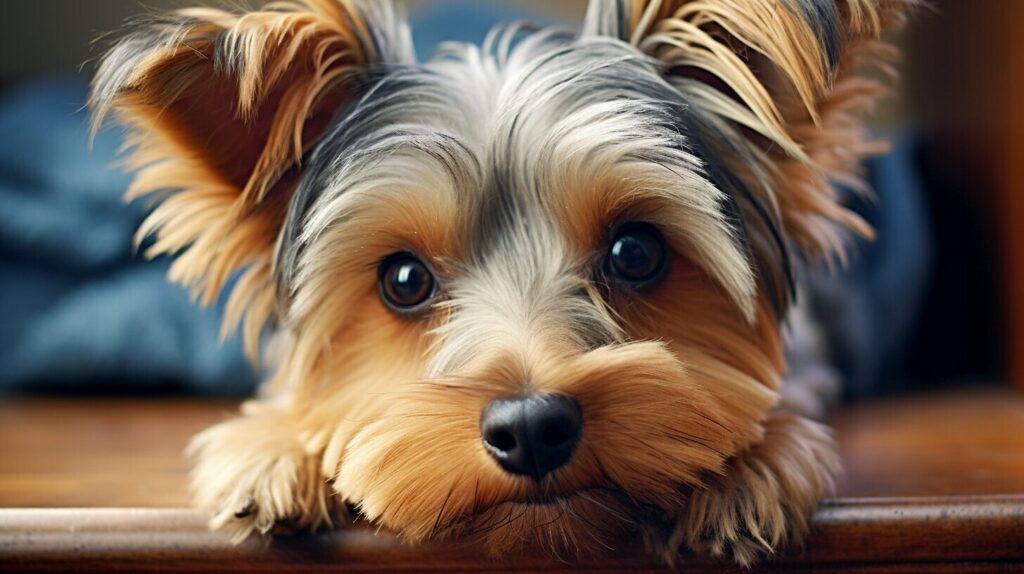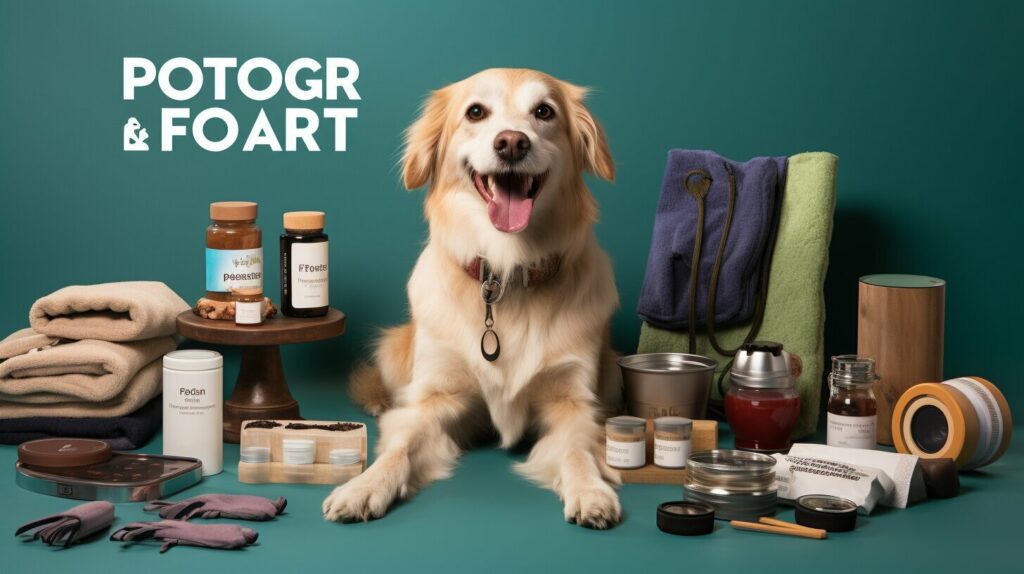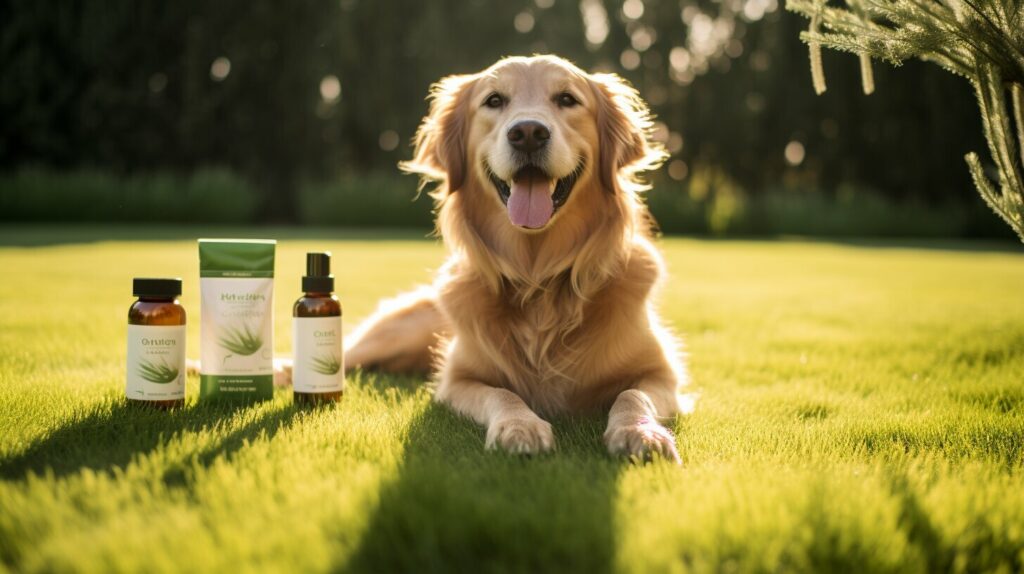If you’re looking for a small, elegant, and intelligent companion, look no further than Yorkshire dogs. These dogs, also known as Yorkies, are a beloved breed that make great family pets. Whether you’re a first-time dog owner or a seasoned pet parent, this comprehensive guide will provide you with everything you need to know about caring for your Yorkshire dog.
Key Takeaways:
- Yorkshire dogs, also known as Yorkies, are a small and elegant breed that make great family pets.
- This guide will cover everything from their unique traits and characteristics to their history and origin.
- You’ll also learn about proper care, grooming, training techniques, and finding the perfect Yorkshire dog for adoption.
Understanding Yorkshire Dogs: Traits and Characteristics
If you’re considering bringing a Yorkshire dog into your home, it’s important to understand their distinctive traits and characteristics. Yorkshire dogs, also known as Yorkshire Terriers or Yorkies, are a small breed known for their elegant appearance, lively temperament, and intelligence.
At an average weight of only 7 pounds, Yorkies are small but mighty. They are often described as confident and adventurous, with a playful spirit. Yorkies are also known for their loyalty and can become quite attached to their human family.
As intelligent dogs, Yorkies are typically responsive to positive reinforcement training methods. However, some Yorkies can be stubborn and may require patience and consistent training to overcome any behavioral challenges.
While Yorkies are affectionate by nature, they can be prone to separation anxiety if left alone for long periods. They thrive on human interaction and need plenty of socialization to develop into well-adjusted pets.
As with any breed, it’s important to understand both the benefits and challenges of owning a Yorkshire dog. With the right care and attention, a Yorkie can make a loyal and loving companion for years to come.
Yorkshire Dog Breed: History and Origin
If you’re a fan of Yorkshire terriers, you might be interested to know more about their history and origin. These adorable pups originated in Yorkshire, England, in the mid-19th century, and were initially bred for hunting and ratting purposes. The breed’s exact history is somewhat unclear, but most experts believe that the interbreeding of different terrier breeds led to the development of the Yorkshire terrier as we know it today.
The breed’s popularity grew during the Victorian era, particularly among wealthy women who used them as lap dogs. In 1874, the first Yorkshire terrier was registered with the Kennel Club in England, and they eventually made their way to the United States in the 1880s. From there, the breed quickly became a popular choice for companion dogs, thanks to their small size, intelligence, and affectionate personalities.
Today, the Yorkshire terrier is one of the most popular dog breeds in the world, and it’s easy to see why. These dogs are friendly, loyal, and make great pets for families and individuals alike. Whether you’re looking for a lap dog to cuddle with or a playful companion to keep you on your toes, the Yorkshire terrier is sure to steal your heart.
Caring for Yorkshire Dogs: Health and Wellness
When it comes to taking care of Yorkshire dogs, their health and well-being should always be a top priority. Proper care can help ensure a long, happy life for your furry friend. Here are some important things to keep in mind:
| Topic | Details |
|---|---|
| Nutrition | Feed your Yorkshire dog a balanced diet of high-quality dog food. Be mindful of their small size and adjust serving sizes accordingly. Consult with your veterinarian if you have questions about their dietary needs. |
| Exercise needs | While these dogs are small, they are still active and require regular exercise. Daily walks or playtime in a secure, enclosed area can help ensure they stay physically and mentally fit. |
| Common health issues | Yorkshire dogs can be prone to certain health issues such as dental problems, allergies, and joint issues. Regular check-ups with a veterinarian can help catch and address these issues early on. |
| Preventive care | Preventive care is key to maintaining your Yorkshire dog’s health. This includes regular vaccinations, parasite prevention, and dental cleanings. It is also important to keep up with grooming to prevent skin problems and infections. |
By staying on top of your Yorkshire dog’s health needs, you can help ensure they live a happy, healthy life by your side. Regular veterinary check-ups and a proactive approach to their care are essential.
Yorkshire Dog Grooming: Tips for a Well-Maintained Coat
Grooming is an essential part of caring for your Yorkshire dog. Their unique coat requires regular attention to maintain its beauty and health. Here are some tips to keep in mind when grooming your Yorkshire dog:
- Brush their coat daily: Yorkshire dogs have a long, silky coat that can easily tangle and mat. Brushing their coat daily helps prevent this and also distributes natural oils throughout their coat.
- Bathe them regularly: Bathing your Yorkshire dog once a month helps keep their coat clean, soft, and shiny. Use a mild dog shampoo and rinse thoroughly to avoid skin irritation.
- Trim their hair: Yorkshire dogs have long hair that can cover their eyes and cause discomfort. Regular trimming can help prevent this and also keep their coat neat and tidy.
- Clean their ears: Yorkshire dogs have floppy ears that can trap dirt and debris, leading to infections. Clean their ears weekly with a damp cloth or cotton ball to prevent this.
- Brush their teeth: Dental hygiene is important for all dogs, including Yorkshire dogs. Brush their teeth regularly with a dog-specific toothpaste to avoid dental issues.
Remember, grooming is not only about maintaining your dog’s physical appearance, but also their overall health and well-being. Regular grooming sessions also provide an opportunity for bonding with your Yorkshire dog.
Training Yorkshire Dogs: Nurturing Their Intelligence
If you’re a proud owner of Yorkshire dogs, you know how intelligent these little pups can be. With their quick minds and eager-to-please attitudes, they’re wonderful candidates for training. Here are some tips to help you nurture their intelligence and bring out their best behavior:
- Start early: Begin training your Yorkshire dog as early as possible to establish good habits and prevent bad ones from forming. Socialization and basic obedience training should start as soon as your puppy is old enough.
- Use positive reinforcement: Yorkshire dogs respond best to positive reinforcement, such as treats, praise, and affection. Avoid any negative training methods, such as shouting, physical punishment, or scolding.
- Keep it short and sweet: Yorkshire dogs have short attention spans, so keep training sessions short (around 10-15 minutes) and focused. Regular, consistent training is more effective than marathon sessions once a week.
- Be patient: Training takes time and patience, so don’t get discouraged if progress is slow. Celebrate small victories and keep working toward your goals.
- Be consistent: Consistency is key when training Yorkshire dogs. Use the same commands, rewards, and training methods every time to avoid confusion and reinforce good behavior.
- Use variety: Mix up your training routine to keep your Yorkshire dog engaged and interested. Try different types of training, such as agility, tricks, and scent work.
Addressing Behavioral Issues
While Yorkshire dogs are generally well-behaved, they may develop behavioral issues if not properly trained or socialized. Here are some common problems and strategies for addressing them:
| Behavioral Issue | Strategy |
|---|---|
| Barking or yapping | Teach your dog to “speak” and “quiet” commands, and reward quiet behavior. Address any underlying causes of barking, such as boredom or anxiety. |
| Separation anxiety | Gradually acclimate your dog to being alone, using desensitization and counter-conditioning techniques. Provide plenty of mental and physical stimulation when you’re away. |
| Aggression | Work with a professional trainer to address any aggressive tendencies and prevent aggressive behavior from escalating. Avoid punishment and focus on positive reinforcement. |
With patience, consistency, and positive reinforcement, you can train your Yorkshire dog to be a well-behaved and obedient companion. Remember to keep training sessions fun and engaging, and don’t hesitate to seek professional help if you encounter any challenges.
Yorkshire Dog as a Family Pet: Adaptability and Companionship
When it comes to choosing a family pet, the Yorkshire dog is an excellent choice for many households. Their small size makes them ideal for apartments or homes with limited space, while their lively and affectionate temperament makes them a great companion for both adults and children.
Yorkshire dogs are adaptable to different living arrangements, whether it’s a busy city or a quieter suburban neighborhood. They are also known to get along with other pets, although early socialization is essential to ensure they learn appropriate behavior.
These dogs thrive on companionship and affection, making them ideal for families who are looking for a loyal and loving pet. They enjoy playing and interacting with their owners, and their intelligence and trainability make them responsive to positive reinforcement training methods.
If you are considering a Yorkshire dog as a family pet, it’s important to take into account their grooming needs and potential health issues. Regular grooming, including brushing, bathing, and professional grooming, is essential to maintain their unique coat. Additionally, they may be prone to certain health issues, such as dental problems and skin allergies, that require regular veterinary check-ups and preventive care.
Overall, a Yorkshire dog can be a wonderful addition to your family. With proper care, training, and attention, they can offer years of affectionate companionship and joy in your household.
Yorkshire Dog Adoption: Finding Your Perfect Companion
If you’ve decided to adopt a Yorkshire dog, there are several important factors to consider before bringing your new furry friend home. By doing your research and taking the time to evaluate your options, you can ensure that you find the perfect companion to fit your lifestyle and needs.
Finding Reputable Breeders or Rescue Organizations
When searching for a Yorkshire dog, it’s important to do business with reputable breeders or rescue organizations. Look for organizations that specialize in Yorkshire terriers and have a proven track record of providing top-quality care and support.
Research breeders and rescues online, read reviews, and ask for recommendations from friends, family, or your veterinarian. Be sure to ask questions about the dog’s health history, temperament, and any necessary vaccinations or medical treatments.
Evaluating Potential Puppies
When evaluating potential puppies, look for a well-socialized dog that is alert, energetic, and friendly. Check for any signs of illness or disease, such as vomiting, diarrhea, or lethargy. If you’re adopting from a breeder, ask to see the parents to get an idea of the puppy’s temperament and physical characteristics.
Before adoption, ask for a written contract that outlines the puppy’s health history, required vaccinations, and any other relevant information. Make sure you understand the financial responsibilities of dog ownership, including food, medical costs, and grooming expenses.
Understanding the Responsibilities of Dog Ownership
Adopting a Yorkshire dog is a long-term commitment that requires dedication, patience, and responsibility. Ensure that you have the necessary resources and time to provide proper care and attention to your new pet.
To help your puppy adjust to their new home, establish a consistent routine and provide plenty of love and attention. Make sure your home is safe and secure, with plenty of opportunities for exercise and socialization. Consider enrolling in obedience classes to help your dog develop good manners and behavior.
By carefully considering your options and taking the necessary steps to ensure a successful adoption, you can find the perfect Yorkshire dog to join your family and bring joy and companionship for years to come.
Conclusion
Congratulations! You’ve now become an expert on Yorkshire dogs. In this guide, we’ve covered everything from their distinct traits and characteristics to their historical background and proper care. You now know how to maintain their health and wellness, groom their beautiful coat, train them effectively, and ensure they make great family pets.
Remember, owning a dog is a significant responsibility. It’s important to provide them with a safe and nurturing environment where they can thrive. Whether you’re adopting a puppy or already have a Yorkshire dog, it’s crucial to prioritize their needs and devote time and effort to their well-being.
We hope this guide has been helpful to you in your journey as a Yorkshire dog owner. Remember to consult with professionals, such as veterinarians or dog trainers, whenever you need additional guidance. Here’s to a long and happy life with your furry companion!
FAQ
Q: What are the traits and characteristics of Yorkshire dogs?
A: Yorkshire dogs are known for their small size, elegant appearance, lively temperament, and intelligence. They are also loyal and affectionate, but can have some challenges due to their breed.
Q: Where did Yorkshire dogs originate from?
A: Yorkshire dogs originated in Yorkshire, England. They were originally bred for ratting and hunting purposes and eventually became popular as companion dogs.
Q: How should I care for the health and wellness of my Yorkshire dog?
A: It is important to provide proper nutrition, regular exercise, and preventive care for your Yorkshire dog. Regular veterinary check-ups are essential for maintaining their health.
Q: What grooming tips are specific to Yorkshire dogs?
A: Yorkshire dogs have a unique coat that requires regular brushing, bathing, and professional grooming. It is also important to address their haircut needs and practice good hygiene.
Q: How can I train my Yorkshire dog?
A: Yorkshire dogs are intelligent and respond well to positive reinforcement training methods. Basic obedience training, socialization, and addressing potential behavioral issues are important aspects of their training.
Q: Are Yorkshire dogs suitable as family pets?
A: Yorkshire dogs are adaptable to various living situations and can be compatible with children and other pets. They require companionship and a nurturing environment to thrive as family pets.
Q: How can I adopt a Yorkshire dog?
A: To adopt a Yorkshire dog, you can find reputable breeders or rescue organizations. Evaluate potential puppies and understand the responsibilities and financial commitment associated with dog ownership.



